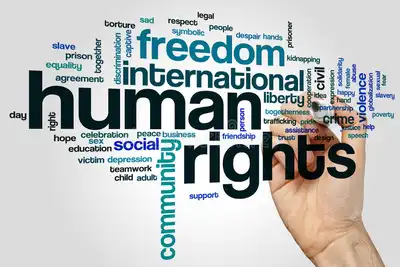What Are Human Rights In South Africa?

What Are Human Rights?
Human rights are privileges that everyone is entitled to by virtue of being a person. The Universal Declaration of Human Rights, adopted by the UN in 1948, set forth 30 different human rights. Humanity, freedom, justice, and peace served as the foundation for establishing global human rights. Indivisible human rights are protected by South Africa’s Bill of Rights, Chapter 2 of the Constitution of the Republic of South Africa, 1996. It is challenging for anyone, including the government, to take away a citizen’s fundamental rights because a two-thirds majority in Parliament can only alter the articles of our Constitution. The cornerstone of our representative and constitutional democracy is the Bill of Rights, as it is preserved in our Constitution. No legislation that conflicts with the Constitution may be passed because it is our supreme law. An in-depth discussion of South Africa’s history of oppression, colonialism, slavery, racism, misogyny, and other human rights abuses is also provided in the Bill of Rights. The Bill of Rights enshrines all citizens’ rights in a steadfast statement of the democratic principles of freedom, equality, and human dignity.
Day Of Human Rights, March 21
The events of Sharpeville on March 21, 1960, are historically associated with Human Rights Day in South Africa. When police opened fire on a nonviolent throng that had gathered to protest the Pass restrictions that day, 69 people lost their lives, and 180 more were injured. The general public stood up in unison to declare their rights on this day. As a reminder of our rights and the price paid for our prized human rights, it became an iconic date in our nation’s history that we honor today as Human Rights Day.
- What Is The Age Of Consent In South Africa?
- What Is Social Justice In South Africa?
- What is Nation Building In South Africa?
- What Is Cornmeal In South Africa
- What Is All-Purpose Flour In South Africa?
- What He Did To Build Democracy In South Africa
- What Happens When You Win The Lotto In South Africa
- What Happened In 1994 In South Africa
- What Are The Socio-Economic Issues In South Africa
Apartheid Laws
When the Nationalist Party assumed power in South Africa in 1948, it formalized segregation through a series of laws that allowed the state control over Black people’s movement in metropolitan areas. Black people with a permanent address in a town or city are now more specifically defined thanks to the Native Laws Amendment Act of 1952. Legally, no Black person could move from a rural to an urban region without a permit from the local government, and once they arrived in the city, they had 72 hours to apply for a permit to look for work. The Reference Book, or Pass, contained a portrait, information about the person’s place of origin, employment history, tax payments, and police interactions. When 20,000 women marched to the Union Building in Pretoria in 1956, singing “within abafazi, wathint’ imbokodo – you strike a woman, you strike a rock,” women from all sectors of life demonstrated against the racist Pass laws.
Current Era Rights
Human Rights Day was formally declared a public holiday on March 21 following South Africa’s first democratic election, in which Nelson Mandela was chosen as the country’s first democratic president. On Human Rights Day, South Africans are urged to consider their rights and uphold those of everyone else. This is true regardless of a person’s color, gender, religion, sexual orientation, or nationality; human rights apply to all individuals equally. We must continue to look for and report abuse and cruelty, including human trafficking, child labor, forced labor, and violence against women, children, the elderly, and other vulnerable populations.
Share This




